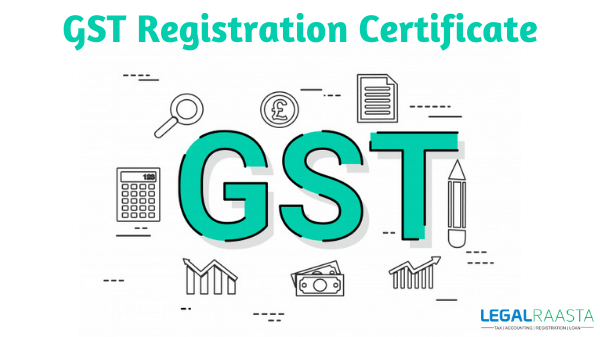Affordable Choices for the very best GST Registration Services in Singapore
Affordable Choices for the very best GST Registration Services in Singapore
Blog Article
From Begin to Finish: The Ultimate Roadmap to GST Registration for Companies Seeking Financial Security
Navigating the complexities of Product and Services Tax Obligation (GST) enrollment is a vital action for companies aiming for financial security. Damaging down the roadmap into workable actions can enhance the enrollment trip for organizations looking to improve their economic standing.
Comprehending GST Basics
Exploring the essential principles of Product and Services Tax Obligation (GST) is essential for getting a detailed understanding of its ramifications on companies and the economic climate. GST is a value-added tax obligation imposed on the majority of items and solutions for domestic consumption. It has changed multiple indirect taxes that existed in the pre-GST era, streamlining the tax obligation framework and boosting simplicity of doing company in India. Under the GST system, both items and services are tired at a specific rate, which is identified based upon their classification. If their yearly turnover exceeds the threshold limit established by the federal government, services are called for to sign up for GST. Input Tax Obligation Credit Report (ITC) is a considerable feature of GST, permitting services to declare credit scores for tax obligations paid on inputs, lowering the overall tax problem. Understanding the fundamentals of GST is critical for services to follow tax obligation regulations, handle their finances efficiently, and contribute to the country's economic development by taking part in a transparent tax obligation system.
Eligibility Criteria for Enrollment
To sign up for GST, services need to satisfy certain qualification criteria established by the government. The primary eligibility need is that any type of company associated with the supply of items or solutions with an annual aggregate turnover over the threshold restriction set by the authorities have to sign up for GST. Since the current regulations, the threshold restriction for GST registration is a yearly aggregate turn over of 40 lakhs for businesses operating within a state, with the exception of unique classification states where the restriction is 20 lakhs. Additionally, certain companies are called for to sign up for GST regardless of their turnover, such as interstate providers, casual taxed individuals, and organizations responsible to pay tax under the reverse cost device. It is essential for businesses to thoroughly assess their turnover and deal kinds to determine their GST enrollment commitments properly. Failure to register for GST when eligible can cause charges and lawful consequences, making it necessary for companies to abide by the defined eligibility standards.
Records Needed for Enrollment
Having actually met the eligibility criteria for GST enrollment, companies have to currently guarantee they have the requisite records in position to wage the registration process effectively. The papers needed for GST enrollment usually include evidence of organization constitution, such as partnership act, enrollment certification, or incorporation certificate for various kinds of companies. Additionally, services need to offer files developing the major location of organization, such as a rental agreement or electrical power costs. Frying pan card of the company, as well as the identification and address proof of promoters/partners/directors, are essential try this out for verification objectives. Checking account statements, together with terminated cheques or a copy of the financial institution passbook, are required to confirm the financial information given throughout enrollment. In addition, businesses have to have digital signatures ready for the licensed signatory. Ensuring all these files are organized and readily available will certainly speed up the GST registration procedure, enabling companies to follow tax regulations seamlessly.
Step-by-Step Registration Refine
Beginning the GST registration process entails a series of structured steps to make certain a compliant and seamless i thought about this enrollment for organizations. The primary step is to see the GST portal and fill out the registration type with precise details of the service entity. Following this, the candidate gets a Momentary Reference Number (TRN) which is utilized to return to the application process if it's not completed in one go.
Next, all required documents as per the checklist given by the GST portal requirement to be posted. These papers typically consist of evidence of service enrollment, identification and address evidence of promoters, monetary declarations, and service entity's PAN card.

Post-Registration Compliance Guidelines

Conclusion
Finally, organizations seeking economic stability should comprehend the basics of GST, fulfill eligibility criteria, gather essential files, comply with the step-by-step enrollment process, and follow post-registration guidelines - Best GST registration services in Singapore. By adhering to these steps, companies can ensure compliance with tax regulations and preserve financial security in the future
In addition, specific businesses are required to sign up for GST regardless of their turnover, such as interstate suppliers, casual taxable individuals, and businesses accountable to pay tax obligation under the reverse fee system.Having actually fulfilled the eligibility requirements for GST enrollment, companies need to now ensure they have the requisite records in area to continue with the enrollment procedure efficiently. The documents needed for GST enrollment usually consist of evidence of service constitution, such as partnership act, registration certificate, or incorporation certificate for various types of companies. Additionally, companies need to give files establishing the primary place of company, such as a rental agreement or electricity expense.Starting the GST registration process involves a series of organized steps to make sure a smooth and certified enrollment for companies.
Report this page